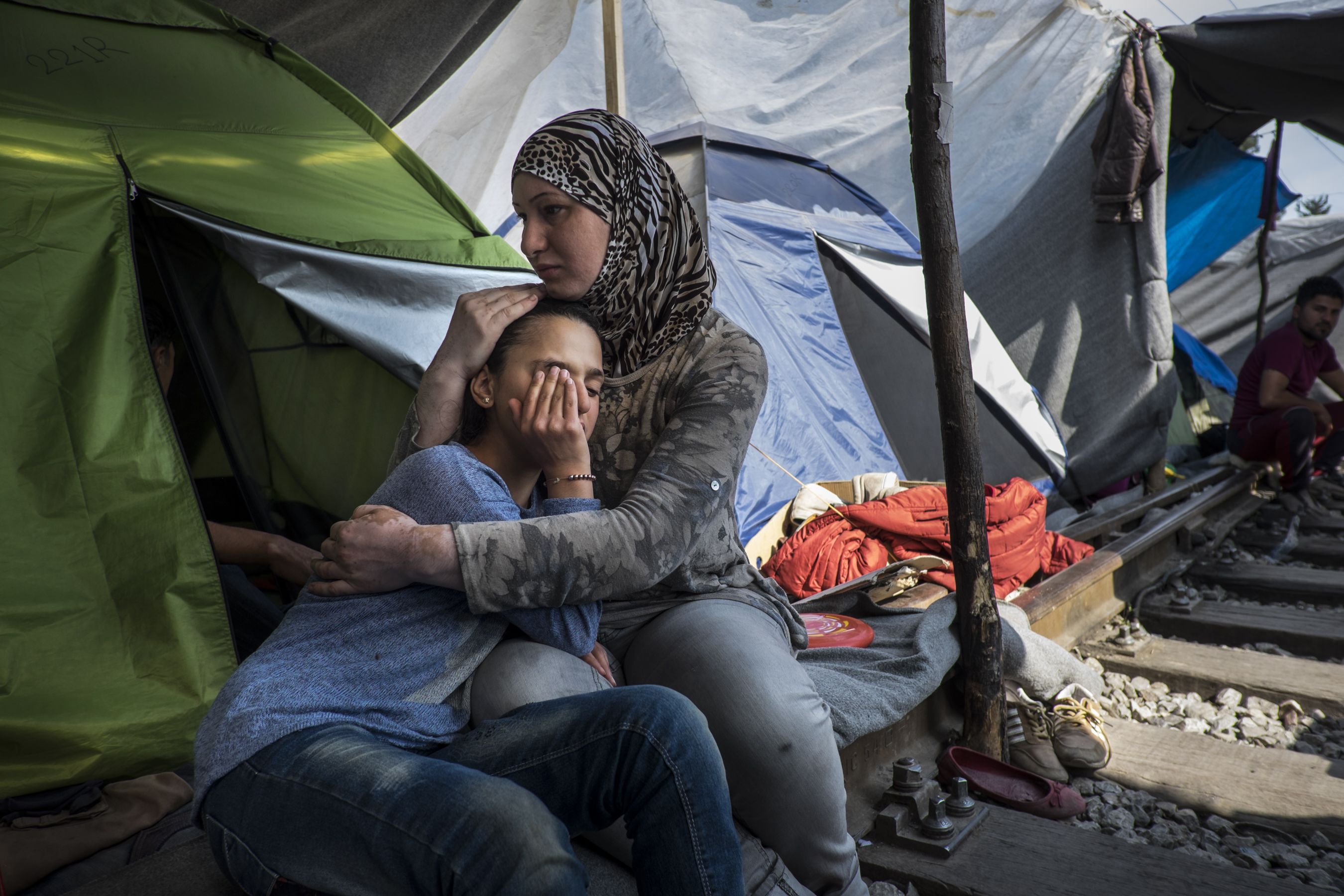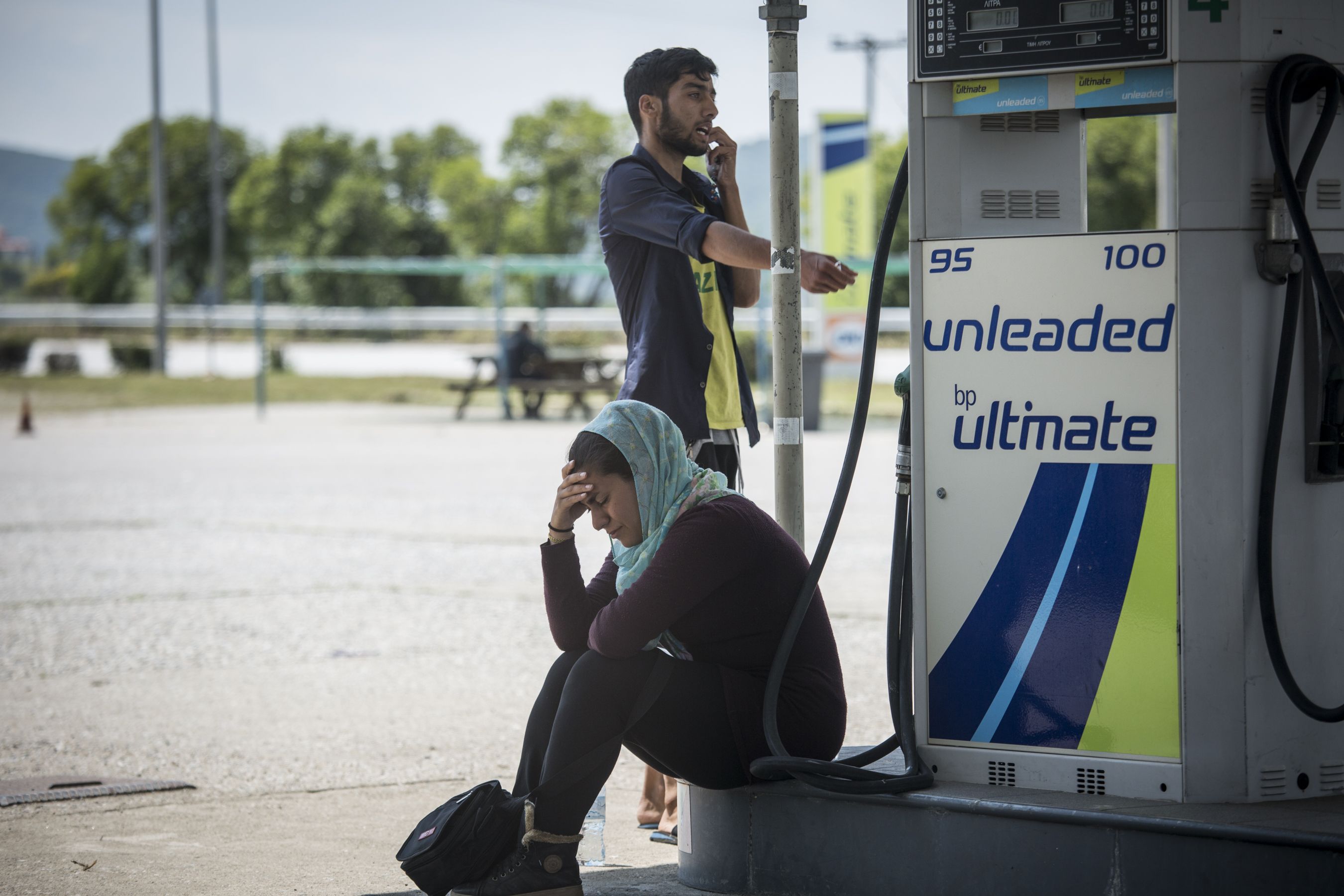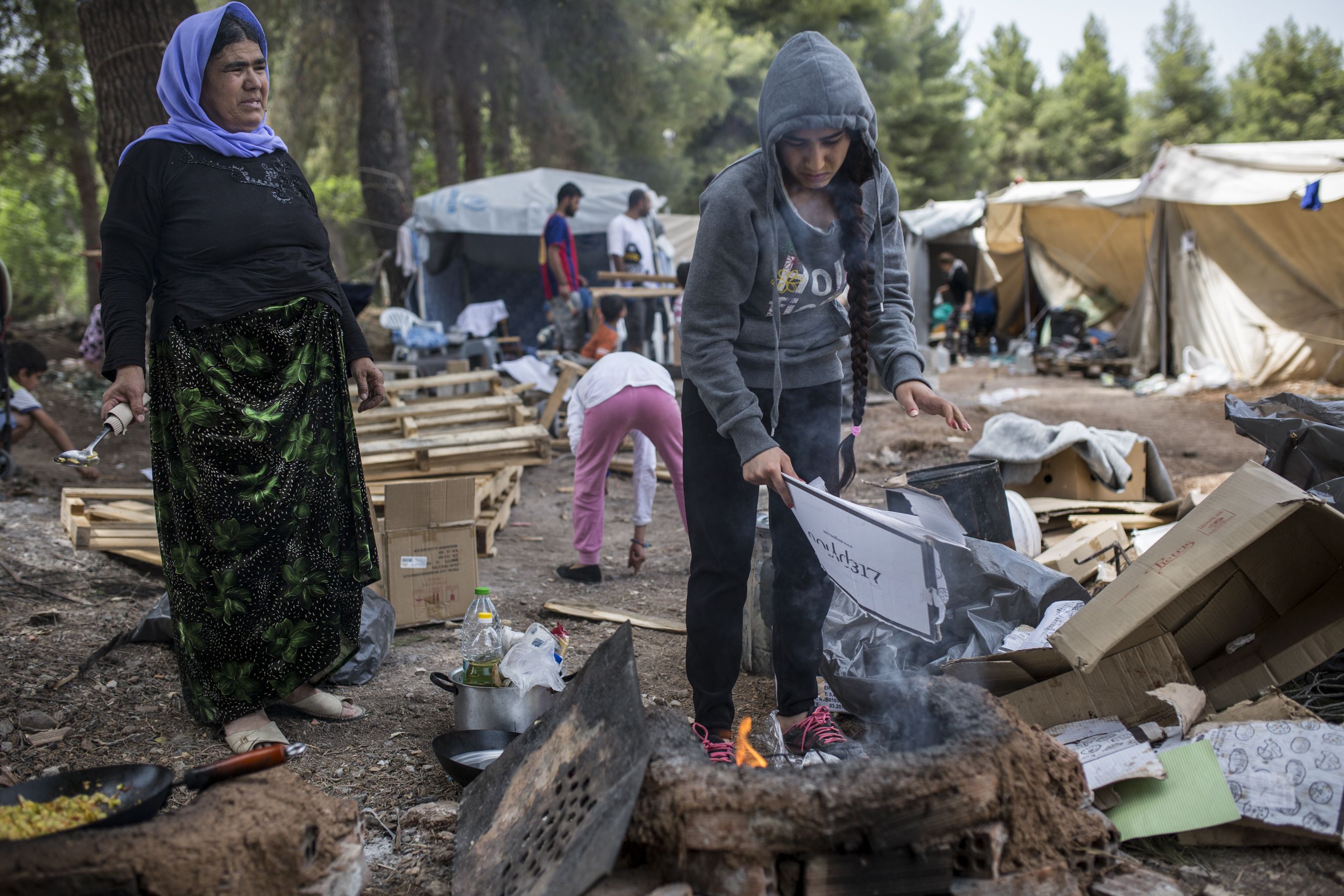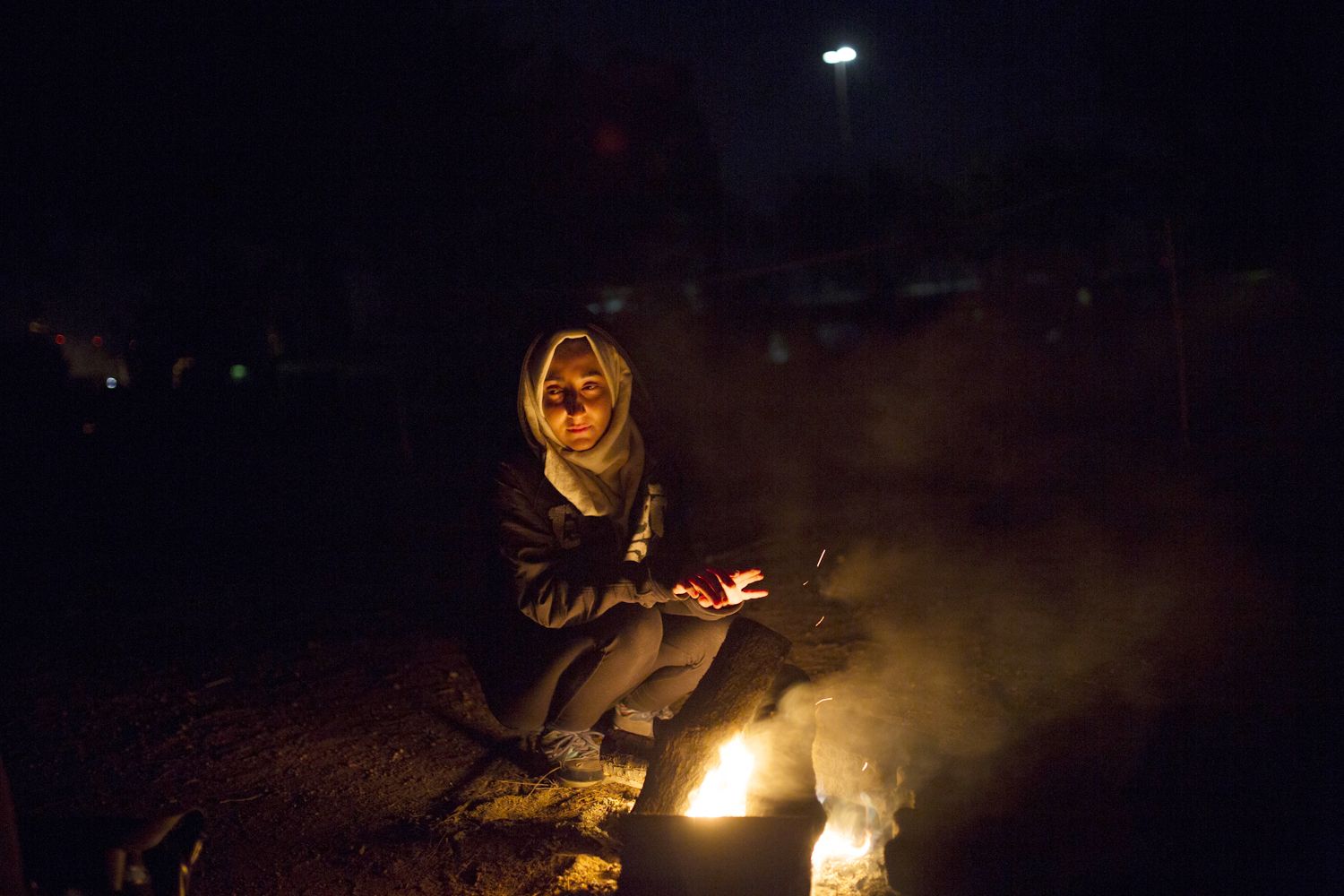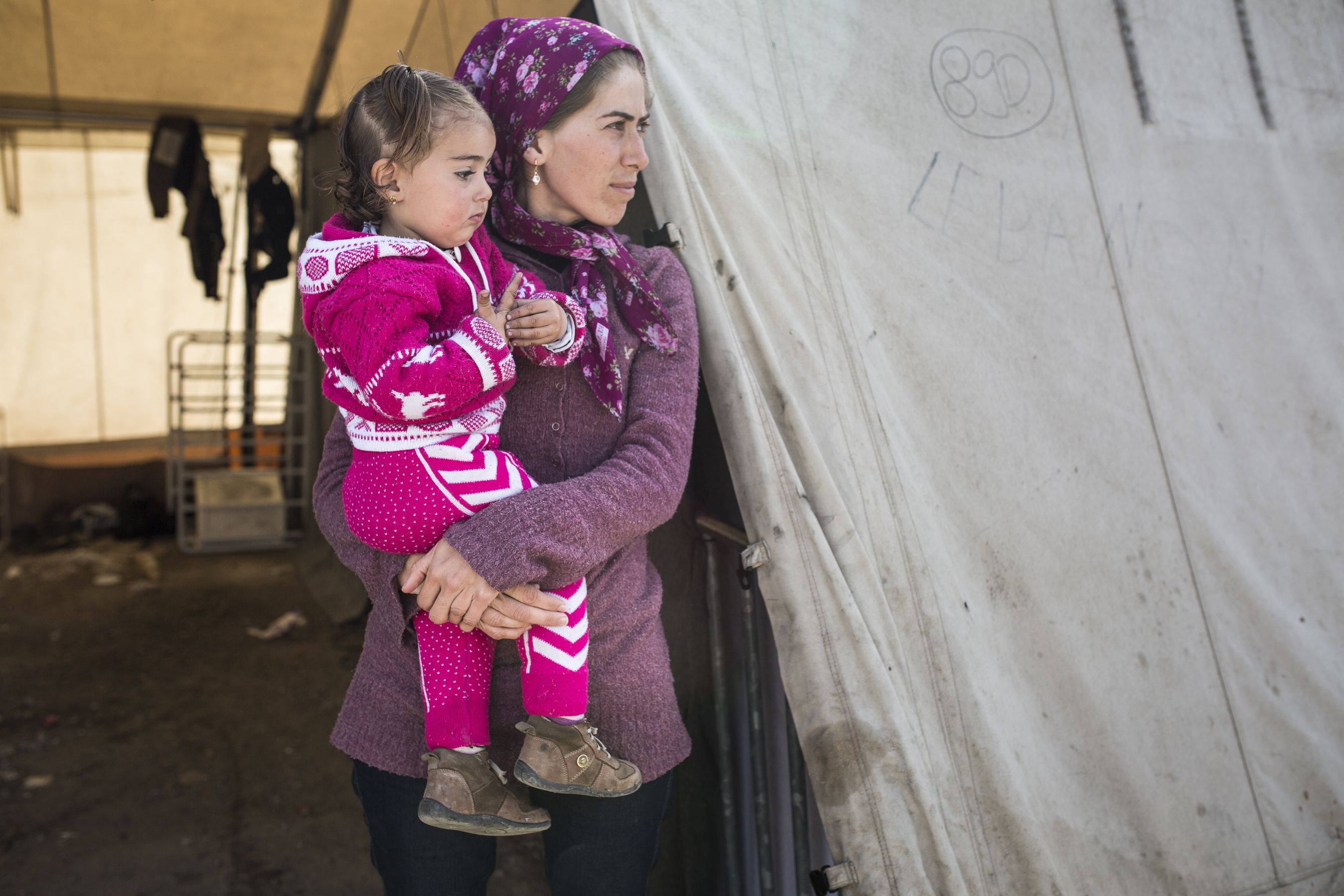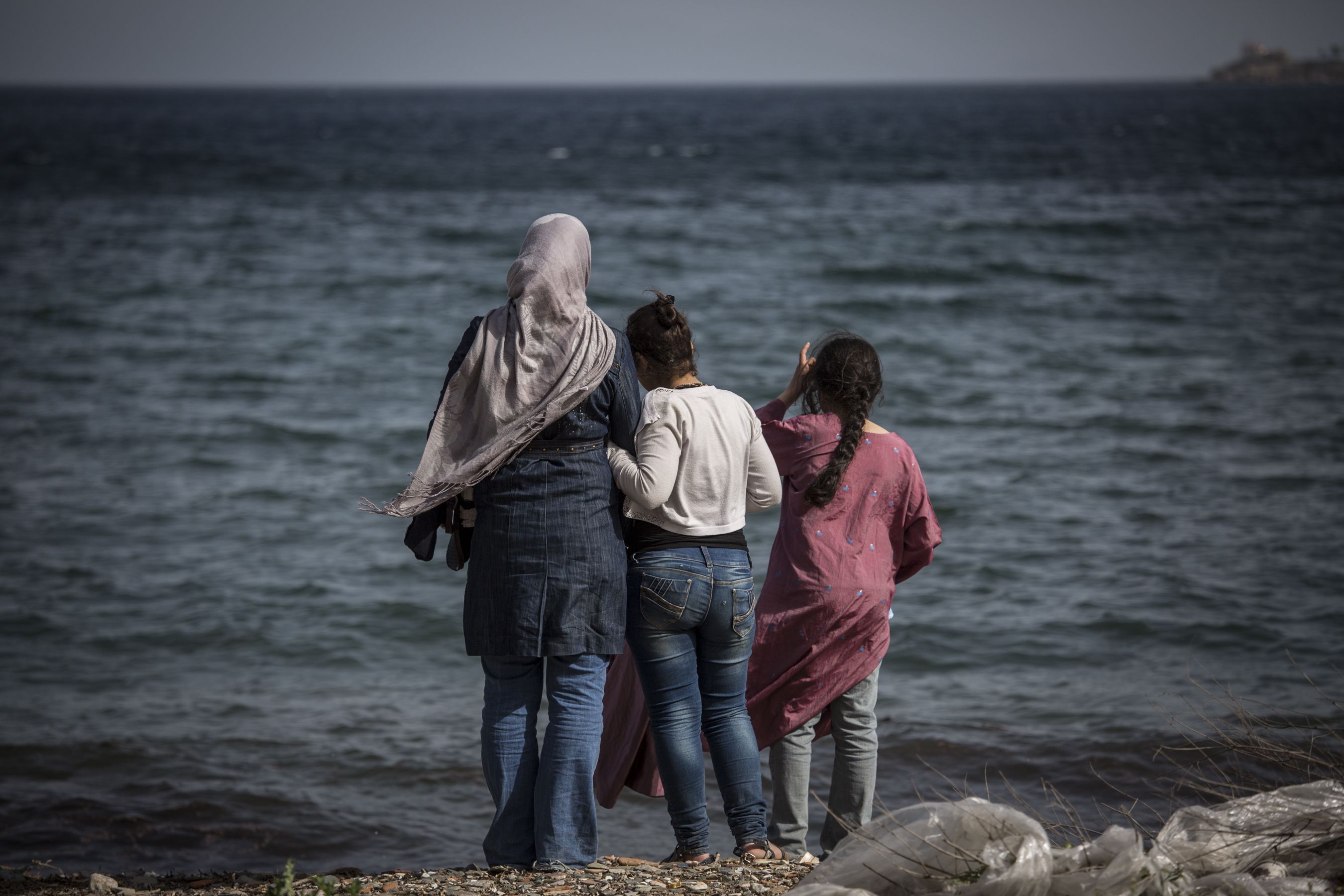Pulitzer Center grantee Jodi Hilton's photographs of refugees in Greece were featured in an August 2016 report by the Women's Refugee Commission about a March 2016 agreement between the EU and Turkey that aimed to reduce the flow of refugees into Europe. The report's Executive Summary has been reproduced below.
In 2015, more than one million refugees and migrants fleeing war, persecution, gender-based violence and other crises arrived in Europe in search of safety and asylum. Some 240,000 have arrived in 2016, so far. Most of them made the perilous voyage across the Aegean Sea from Turkey to Greece, traveling onward toward Western Europe. While all of these refugees face risks, women and girls especially have experienced sexual assault, extortion, exploitation and rights violations at every stage of their traumatic journey. They include single women traveling alone, female-headed households, pregnant women, adolescent girls, unaccompanied minors and women with disabilities.
Throughout this mass migration to and through Europe, there have been significant and alarming gaps in protection and services for refugee women and girls. At every point where risk could have been mitigated, the humanitarian response has been woefully inadequate.
The situation for refugees has become even more complex and precarious since March 20, 2016, when the European Union and Turkey launched a highly politicized plan to reduce the flow of refugees into Europe. A key part of the deal centers on detaining new arrivals in Greece and containing refugees already there, as determinations are made as to whether refugees are given asylum in Greece, sent back to Turkey or resettled in an accepting European country.
While urgent action was needed to better manage the crisis, the Women’s Refugee Commission finds the deal short-sighted, discriminatory and legally-dubious, with profound and distressing ramifications for refugees seeking asylum and family reunification in Europe, particularly women and girls.
After the deal was announced, Greece was forced to turn its reception centers into detention centers almost overnight. Dilapidated factories, warehouses and other sites unfit for human habitation were quickly converted into camps for more than 50,000 refugees now stranded there. Half of these refugees in Greece are women and children and many are attempting to reunite with husbands, fathers and other relatives who traveled ahead to other countries in Europe.
The sites set up for refugees are congested, unsanitary and lack adequate food supplies, water, toilets and showers. Some treat residents like prisoners and restrict their mobility. Little consideration has been given to the safety and protection needs of women and girls in site design or the response as a whole, including measures to reduce risks of gender-based violence (GBV). Scant assistance is available for GBV survivors or other vulnerable refugees, including pregnant women, breastfeeding mothers and children. Many experienced and ready-to-assist local and international aid groups on the ground have been sidelined.
The absence of a clear and sufficiently-resourced and staffed legal protection system in Greece only compounds refugees’ misery and anxiety. Refugee families are in the dark about their options, status and rights due to poor access to information, legal counsel and basic help, as the Greek asylum system struggles to scale up. Aid and legal help are often limited to those of certain nationalities, leaving out many others in desperate need of assistance and protection.
The EU-Turkey agreement stipulates that Turkey will take back a large number of migrants from Greece despite serious concerns that Turkey may not be a safe third country under EU and international law and policies. Recent political insecurity deepens these concerns. While there have only been a small number of returns to date to Turkey, these refugees are being placed into detention centers with distressingly little access to medical, psycho-social, legal and other critical services.
While the EU-Turkey plan has slowed boat crossings, thereby curbing the flow of asylum seekers into Western Europe as intended, it is nothing short of a protection and legal disaster for refugees, particularly women and girls. It is time for Europe’s politics of exclusion to end. The European Union must finally step up and provide meaningful protection to asylum seekers, now and in the future.
Click here to read the full report
